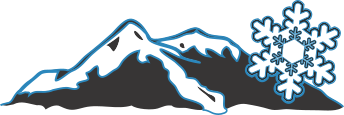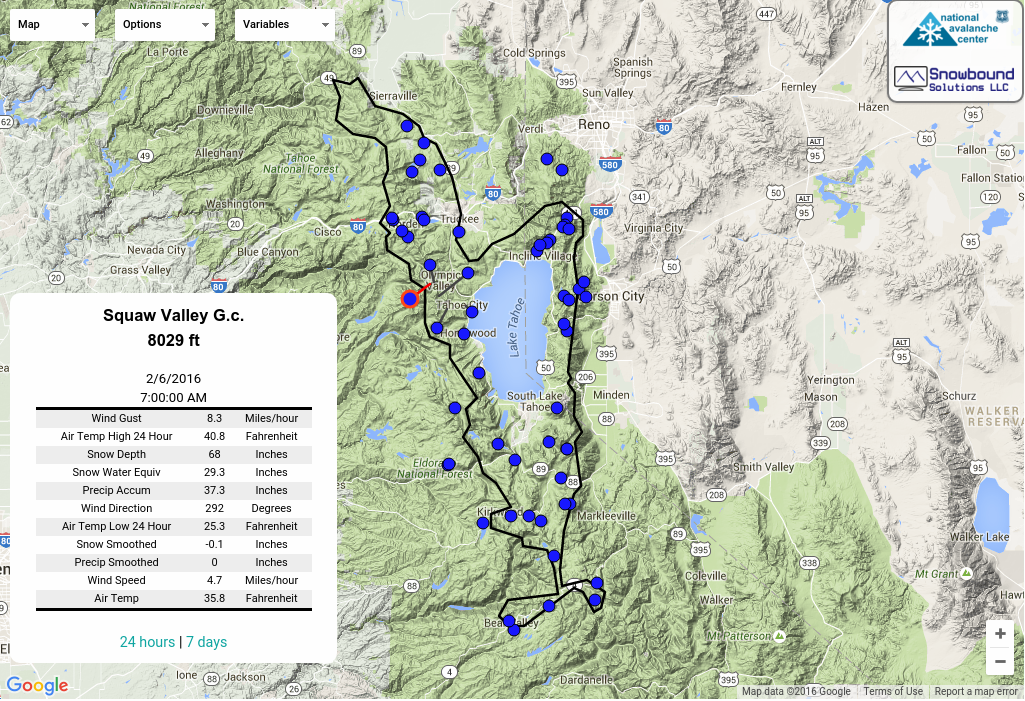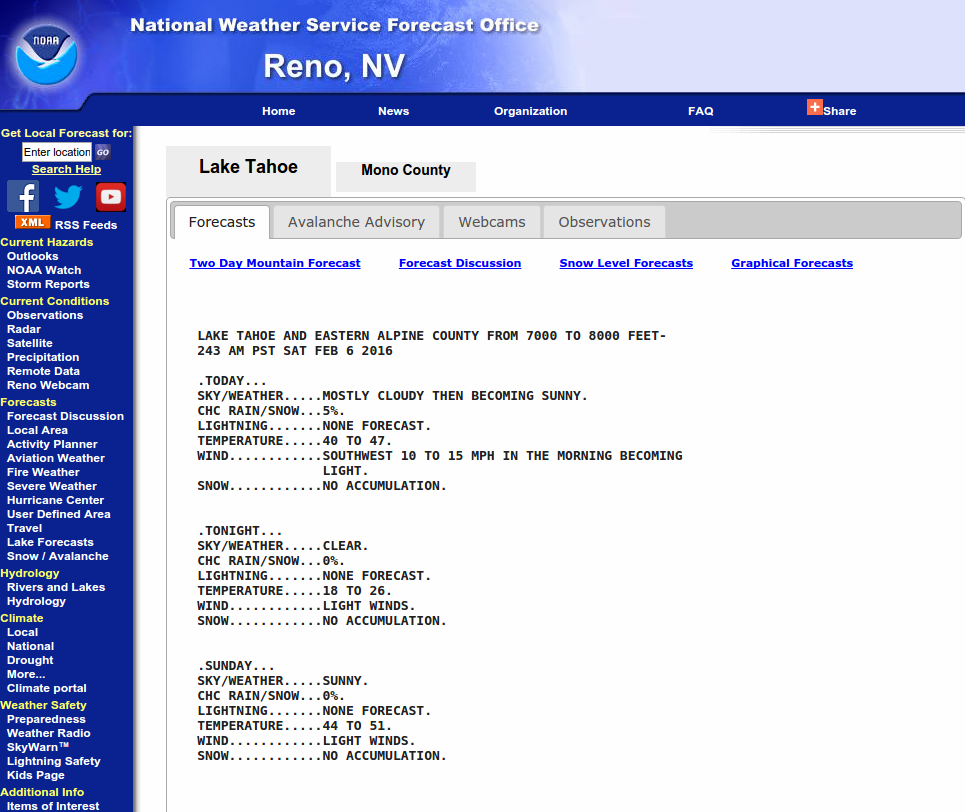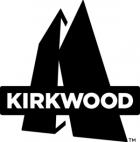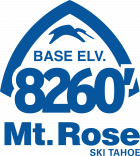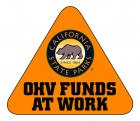
This Avalanche Advisory was published on March 5, 2010:

|
March 5, 2010 at 7:40 am |
|
Avalanche danger is LOW for all elevations and aspects. Human triggered avalanches are unlikely but not impossible on NW-N-NE aspects near and above treeline and below 8,000' on sun exposed E-SE-S-SW aspects. |
|
|
|
Forecast Discussion:
High pressure will remain in place today before the next weather system passes by to the west and south of the forecast area tonight and Saturday. Sunny skies this morning will give way to increasing cloud cover as the day progresses. Light to moderate ridgetop winds shifted from west to east yesterday evening and to south overnight. Light south winds are expected to continue today. An air temperature inversion is in place this morning with the coldest air below about 6,700' in mountain valleys.
Observations made yesterday on Hidden Peak (West Shore Tahoe area) and on Castle Peak (Donner Summit area) both showed evidence of natural slab avalanche activity with crown height 1 foot or less having occurred on Wednesday. Widespread natural point release loose snow avalanches were also noted to have occurred on Wednesday. Snowpit data collected from the crown of a natural slab avalanche on Hidden Peak above treeline at 9,000' on a NE aspect 39 degree slope indicated that the slab instability that had occurred within the storm snow was no longer active with only small human triggered sluffs continuing in steep terrain (photo, pit profile, more info). Light winds were observed in this area with no transport of snow occurring. Snowpit data collected on Castle Peak below treeline at 8,490' on a NW aspect 32 degree slope also indicated that previous storm snow slab instability in this area was no longer active with only small human triggered sluffs continuing in steep terrain (photos, video, pit profile more info). Locally moderate to strong N ridgetop winds were observed in this area with some wind transport and scouring of snow in near and above treeline areas on NW-N-NE aspects. Remote sensors above 8,000' across the forecast area show up to 6 inches of settlement has occurred within the storm snow during the past 24 hours.
Avalanche Concerns:
Human triggered avalanches are unlikely but certainly not impossible today. Backcountry travelers should maintain awareness for isolated human triggered avalanches that may occur within greater areas of seemingly stable snow. The most realistic areas for instability to occur are on NW-N-NE aspects near and above treeline and below 8,000' on sun exposed E-SE-S-SW aspects. On northerly aspects, surface sluff activity is most likely with very isolated slab activity not impossible. In areas that were scoured by N winds yesterday, this will be less of a concern. Below 8,000' on E-SE-S-SW aspects, wet surface slabs involving the top few inches of the recent storm snow are unlikely but not impossible in sun exposed areas.
The bottom line:
Avalanche danger is LOW for all elevations and aspects. Human triggered avalanches are unlikely but not impossible on NW-N-NE aspects near and above treeline and below 8,000' on sun exposed E-SE-S-SW aspects.
Weather Observations from along the Sierra Crest between 8200 ft and 8800 ft:
| 0600 temperature: | 17 to 22 deg. F. |
| Max. temperature in the last 24 hours: | 23 to 28 deg. F. |
| Average wind direction during the last 24 hours: | West shifting to north shifting to east shifting to south |
| Average wind speed during the last 24 hours: | 15 mph |
| Maximum wind gust in the last 24 hours: | 37 mph |
| New snowfall in the last 24 hours: | 0 to trace inches |
| Total snow depth: | 90 to 124 inches |
Two-Day Mountain Weather Forecast - Produced in partnership with the Reno NWS
For 7000-8000 ft: |
|||
| Friday: | Friday Night: | Saturday: | |
| Weather: | Sunny skies in the morning becoming cloudy. | Cloudy skies with a chance of snow showers. | Cloudy skies with a chance of snow showers. |
| Temperatures: | 30 to 37 deg. F. | 23 to 29 deg. F. | 28 to 35 deg. F. |
| Wind direction: | S | SE | E |
| Wind speed: | Up to 10 mph. | Around 10 mph. | 10 to 15 mph with gusts to 25 mph in the afternoon. |
| Expected snowfall: | O in. | 0 to trace in. | 0 to trace in. |
For 8000-9000 ft: |
|||
| Friday: | Friday Night: | Saturday: | |
| Weather: | Sunny skies in the morning becoming cloudy. | Cloudy skies with a chance of snow showers. | Cloudy skies with a chance of snow showers. |
| Temperatures: | 23 to 30 deg. F. | 20 to 25 deg. F. | 21 to 28 deg. F. |
| Wind direction: | S | SE | SE |
| Wind speed: | Around 10 mph. | 10 to 20 mph with gusts to 35 mph. | 10 to 15 mph with gusts to 25 mph. |
| Expected snowfall: | O in. | 0 to trace in. | 0 to trace in. |
